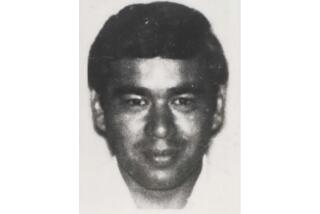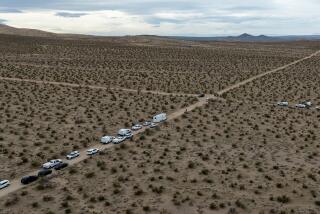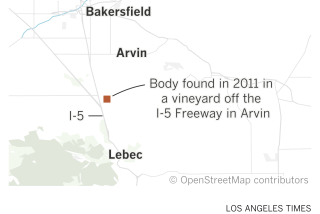Jurors visit desert gravesite where remains of missing McStay family were recovered
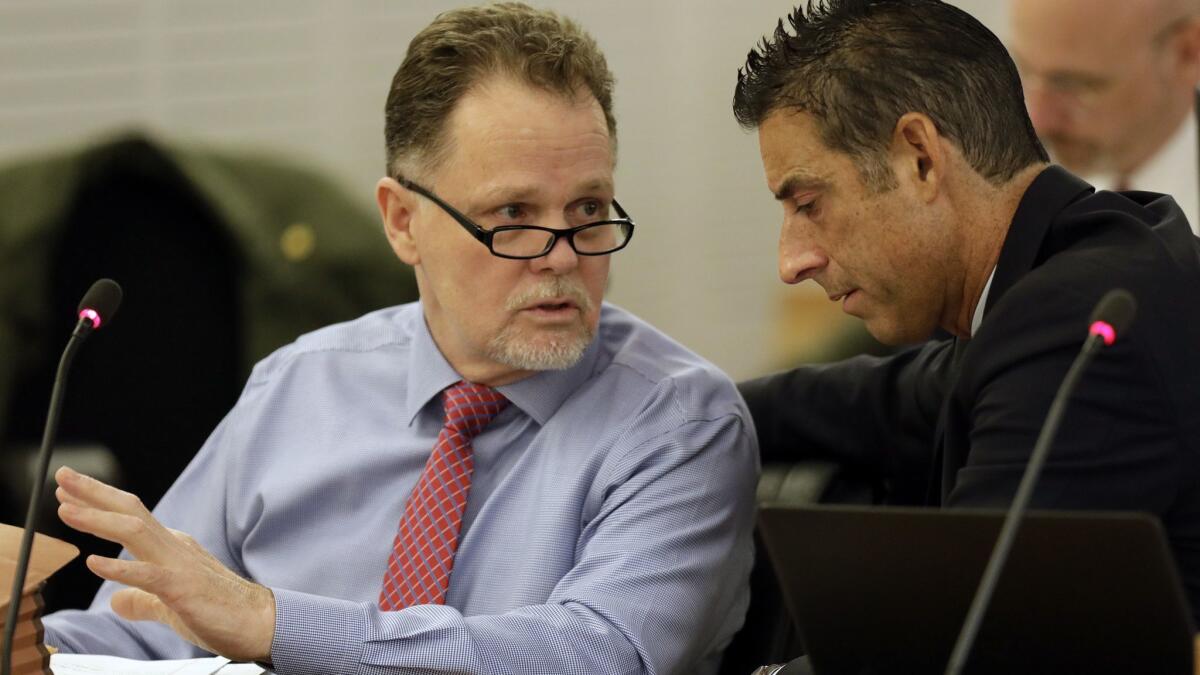
A panel of jurors traveled to the high desert last week, to view the site where the battered remains of a family missing for years were discovered in shallow graves.
In 2014, a year after the skeletal remains of Joseph and Summer McStay and their two young sons were discovered in Victorville, Joseph McStay’s business associate, Charles “Chase” Merritt, was arrested and charged with four counts of murder. The family had disappeared from their home north of San Diego in 2010.
Merritt went on trial for the slayings last month in San Bernardino. If convicted, he could face the death penalty.
Prosecutors allege that Merritt, 61, bludgeoned the family members with a 3-pound sledgehammer before burying them off Interstate 15 in Victorville. Merritt’s defense team says their client is innocent, arguing that authorities have relied on “gymnastics with logic” in an attempt to connect him to the slayings.
The fate of the McStay family, whose Fallbrook home showed signs of a swift departure, gripped the country and long baffled police, who initially treated the case as a missing-persons investigation.
San Bernardino County Superior Court Judge Michael A. Smith has permitted Law & Crime, a legal news website, to live stream the trial, but barred members of the public or media from visiting the grave site Wednesday.
Several days before visiting the site, jurors heard testimony from John Bluth, who spotted human remains while dirt biking in the desert on Veterans Day in 2013. While searching for trails, Bluth said, something caught his eye.
“A bone,” he told jurors. “A loose, white bone.”
He dialed 911, concerned that the remains might belong to a baby. The McStay boys, Gianni and Joseph Jr., were 4 and 3.
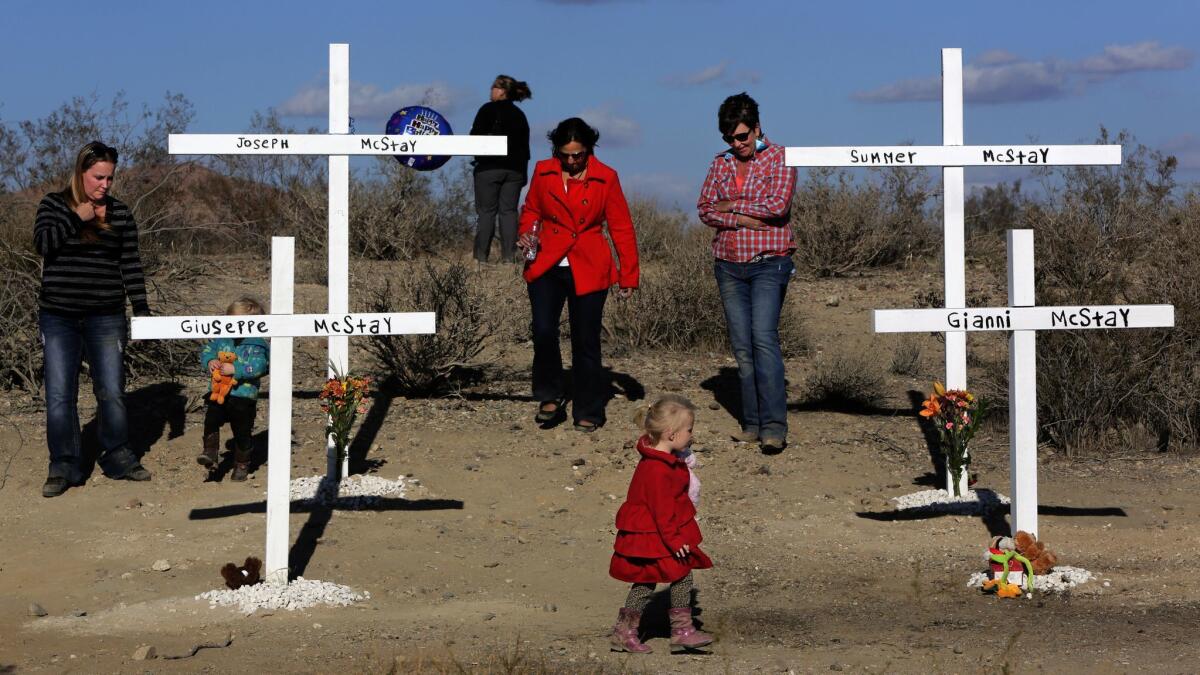
On the first day of Merritt’s trial, which could stretch for several months, prosecutors displayed a series of grisly snapshots — Joseph’s bones wrapped in an electrical cord, a clump of Summer’s hair connected to her skull. Merritt, flanked by his lawyers, stared ahead. On the other side of the courtroom, Joseph McStay’s mother cried silently.
When prosecutors displayed a widely publicized family photo — all four family members smiling wide as they posed in a car — a female juror grimaced.
“How does this family of four disappear off the face of the Earth?” prosecutor Sean Daugherty asked. Over the next several weeks, he told jurors, he planned to present evidence that he said would prove that Merritt killed the family and his motive.
“The why,” he said, “boils down to greed and greed’s child, fraud.”
Prosecutors contend that Merritt, who worked as a subcontractor for Joseph McStay’s company, which sold water fountains, siphoned money from him around the time the family disappeared. Daugherty acknowledged that there are some things authorities can’t answer, including whether anyone helped Merritt. But, he said, there’s a clear answer to a key question: Who got caught ripping off his friend? Daugherty pointed at Merritt.
During his opening statements, defense attorney James McGee argued that once law enforcement considered Merritt a suspect, they got tunnel vision, ignoring evidence that pointed away from his client.
They did “gymnastics with logic,” McGee said. “They predetermined he’s the guy and they didn’t look at anything else.”
The police theory that the McStays were killed at their home, McGee said, is “impossible.” If the family was killed at home, he said, authorities would have found blood.
“No blood was found in the evidence,” he said. “Not a drop, not a trace, not a speck.”
The defense has argued that the family was killed in the desert by someone other than their client.
More to Read
Start your day right
Sign up for Essential California for news, features and recommendations from the L.A. Times and beyond in your inbox six days a week.
You may occasionally receive promotional content from the Los Angeles Times.
